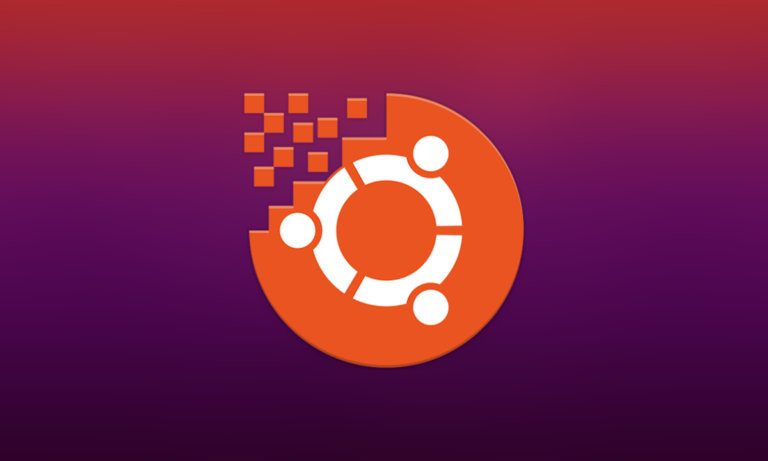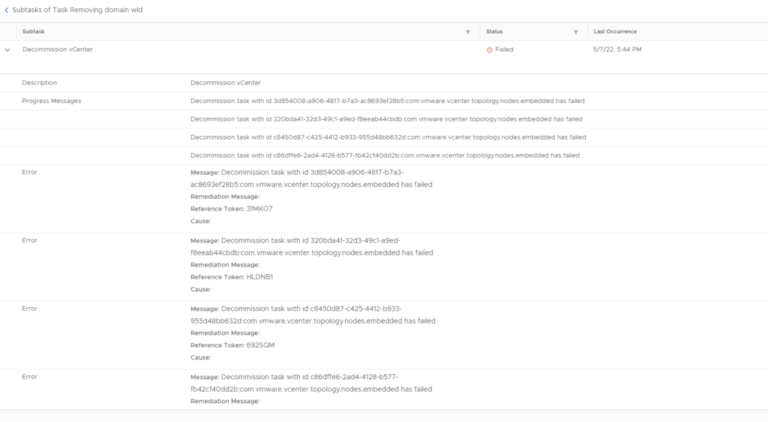In today’s digital age, the importance of data protection and privacy laws cannot be overstated.
From safeguarding personal information to maintaining trust with customers, these laws play a vital role in ensuring the security of sensitive data.
We will explore what data protection and privacy laws entail, the risks of non-compliance, key principles of these laws, and how companies can ensure they are in line with regulations.
Let’s dive into the world of data protection and privacy laws to understand their significance in today’s interconnected world.
Key Takeaways:
What are Data Protection and Privacy Laws?
Data Protection and Privacy Laws refer to legal regulations that govern the collection, use, and safeguarding of personal information to ensure individuals’ privacy rights are protected.
These laws are crucial in establishing a framework for organizations to handle sensitive data responsibly and ethically. Compliance with regulations such as GDPR ensures that companies prioritize data privacy and implement measures to prevent unauthorized access or misuse of personal information.
Non-compliance with these laws can lead to severe consequences, including hefty fines, damage to reputation, and loss of customer trust. Tools like Varonis are employed to monitor and secure data, helping organizations maintain compliance and protect valuable information from cyber threats.
Why are Data Protection and Privacy Laws Important?
Data Protection and Privacy Laws are vital to protect individuals’ rights, prevent unauthorized data breaches, and establish trust between organizations and their customers.
One of the most crucial aspects of data protection laws such as GDPR is ensuring that personal information is collected, processed, and stored securely by organizations. Under the EU regulations, individuals have the right to know how their data is being used, giving them more control over their personal information. This not only safeguards individuals’ privacy but also helps in preventing potential data misuse and unauthorized access.
These laws promote transparency in data handling practices, requiring organizations to be clear and explicit about their data processing activities. By adhering to these regulations, companies can build a sense of reliability and credibility among their customers, which is essential in today’s data-driven world.
What are the Risks of Not Complying with Data Protection and Privacy Laws?
Non-compliance with Data Protection and Privacy Laws can lead to severe consequences, including hefty fines, reputational damage, and legal actions that may jeopardize the sustainability of businesses.
For example, under the GDPR, organizations that fail to protect personal data adequately can face fines of up to 4% of their annual global turnover or €20 million – whichever is higher. Such financial penalties could cripple even the most established companies. The loss of customer trust and damage to the company’s reputation could be irreparable. Organizations like Varonis offer answers to help safeguard data and ensure compliance with regulations such as the GDPR, which is crucial to avoid legal repercussions.
What are the Main Data Protection and Privacy Laws?
The Main Data Protection and Privacy Laws encompass regulations such as the General Data Protection Regulation (GDPR), California Consumer Privacy Act (CCPA), Personal Information Protection and Electronic Documents Act (PIPEDA), Health Insurance Portability and Accountability Act (HIPAA), and Children’s Online Privacy Protection Act (COPPA).
GDPR, the brainchild of the European Union, sets forth stringent rules to protect the personal data of individuals within the EU. It establishes rights for data subjects while imposing obligations on organizations handling this data.
Moving across the Atlantic, CCPA reshapes the landscape for businesses dealing with Californian residents’ data through enhanced transparency and accountability.
On the other hand, PIPEDA, a landmark legislation in Canada, governs how private sector organizations collect, use, and disclose personal information.
HIPAA, primarily applicable to the healthcare industry in the US, safeguards patient health data from unauthorized access.
Meanwhile, COPPA focuses on protecting children’s online privacy by requiring parental consent for data collection.
General Data Protection Regulation (GDPR)
The General Data Protection Regulation (GDPR) is a comprehensive legislation enacted by the EU to protect the privacy and personal data of individuals within the European Union and European Economic Area.
One of the key principles of GDPR is the concept of ‘privacy by design,’ which requires organizations to consider data privacy throughout the entire development process of products or services. This regulation imposes strict requirements on businesses when it comes to collecting, processing, and storing personal data. Companies that handle data, like those using solutions from Varonis, must ensure transparency, security, and lawful processing procedures to comply with GDPR. Non-compliance can result in significant fines, up to 4% of a company’s global annual revenue.
California Consumer Privacy Act (CCPA)
The California Consumer Privacy Act (CCPA) is a state-level privacy law that grants California residents specific rights regarding the collection and use of their personal information by businesses.
The main objective of the CCPA is to give the power to consumers by giving them more control over their personal data. This legislation requires businesses to disclose the types of data they collect, how it is used, and allows consumers to request the deletion of their information. Similar to the GDPR in Europe, the CCPA aims to enhance data privacy standards and increase transparency in data handling practices. Companies like Varonis provide tools and solutions to help organizations comply with these regulations, ensuring data protection and consumer trust.
Personal Information Protection and Electronic Documents Act (PIPEDA)
The Personal Information Protection and Electronic Documents Act (PIPEDA) is a Canadian federal law that governs how private sector organizations handle personal information in the course of commercial activities.
Enacted in 2000, PIPEDA aims to protect individuals’ data privacy by regulating the collection, use, and disclosure of personal information. By setting guidelines for organizations, PIPEDA ensures that personal data is handled responsibly while promoting transparency and accountability. PIPEDA’s provisions align with international standards, such as the General Data Protection Regulation (GDPR) in the EU, reflecting a global effort towards enhanced data protection. Companies like Varonis provide technology solutions that help businesses comply with PIPEDA requirements, enhancing their data security posture and safeguarding sensitive information.
Health Insurance Portability and Accountability Act (HIPAA)
The Health Insurance Portability and Accountability Act (HIPAA) is a US legislation that safeguards the privacy and security of patients’ medical information and establishes standards for healthcare data protection.
Under HIPAA, covered entities such as healthcare providers, health plans, and healthcare clearinghouses are required to implement safeguards to protect the confidentiality of individuals’ health information. This involves measures like restricting access to personal data, conducting regular risk assessments, and ensuring secure electronic transmissions.
HIPAA includes provisions for patients’ rights to access their own medical records, request corrections to inaccuracies, and receive notifications regarding how their data is used and shared. Compliance with HIPAA is essential to avoid costly penalties and protect against data breaches, aligning with the overarching goal of maintaining patient trust and confidentiality in the healthcare sector.
Children’s Online Privacy Protection Act (COPPA)
The Children’s Online Privacy Protection Act (COPPA) is a US federal law that regulates the online collection of personal information from children under the age of 13, aiming to protect their privacy and safety online.
COPPA sets the rules for how websites, apps, and online services must obtain parental consent before collecting personal information from minors. This includes data such as names, addresses, and geolocation details, ensuring that children’s sensitive data remains secure. Data privacy and protection are paramount, especially in today’s digital age where online platforms are ubiquitous. Similar to the General Data Protection Regulation (GDPR) in Europe, COPPA imposes obligations on organizations to safeguard user information.
What are the Key Principles of Data Protection and Privacy Laws?
The Key Principles of Data Protection and Privacy Laws include consent, purpose limitation, data minimization, transparency, data security, and accountability to ensure fair and lawful processing of personal information.
Consent is a fundamental aspect that requires individuals’ permission before gathering and using their data.
Purpose limitation dictates that data should only be collected for specified, explicit, and legitimate purposes, and not further processed in a manner incompatible with those purposes.
Data minimization is about collecting only the data that is necessary for the intended purpose, reducing the risk of excessive or irrelevant information being stored.
Transparency ensures that individuals understand how their data is being used, promoting trust between data controllers and subjects.
Data security encompasses implementing measures to safeguard data from unauthorized access, breaches, and loss, adhering to standards set by regulations like GDPR.
Accountability emphasizes that organizations are responsible for complying with data protection principles, requiring them to demonstrate compliance and be answerable for their data processing activities.
Consent
Consent is a fundamental principle in data protection laws, requiring individuals to provide explicit permission for the processing of their personal data by organizations.
Valid consent is an essential component of various data privacy regulations, such as the GDPR, ensuring that individuals have control over how their information is collected and used. Organizations must adhere to specific criteria for consent to be considered legitimate, including voluntariness, informedness, and specificity.
Consent plays a critical role in promoting transparency and accountability in data processing activities, making it imperative for companies like Varonis to prioritize obtaining valid consent. By obtaining and respecting consent, organizations can establish trust with individuals and demonstrate commitment to upholding data privacy standards.
Purpose Limitation
Purpose Limitation is a principle that restricts organizations to collect and process personal data only for specified, explicit, and legitimate purposes disclosed to the data subjects.
By adhering to the Purpose Limitation principle, organizations not only comply with data protection laws like GDPR but also ensure that the data they gather is not used beyond the original intent. This restriction plays a crucial role in safeguarding individuals’ data privacy and preventing incidents of unauthorized access or misuse of information. Varonis, a renowned cybersecurity company, emphasizes the importance of purpose limitation in establishing trust with customers by being transparent about their data processing activities.
Data Minimization
Data Minimization is the principle that organizations should only collect and retain personal data that is necessary for the intended purposes of processing, limiting data collection to what is proportionate and relevant.
This concept plays a vital role in ensuring compliance with data protection laws such as GDPR, which mandates that personal data processing be limited to what is necessary. By adhering to data minimization practices, organizations can reduce the risk of privacy breaches and unauthorized access to sensitive information. Tools like Varonis offer solutions that help automate data minimization processes, ensuring that only essential data is stored and processed.
Transparency
Transparency is a key principle that requires organizations to inform individuals about the collection, processing, and storage of their personal data in a clear, concise, and easily accessible manner.
Ensuring transparency in data protection practices is not just a legal obligation under regulations like the GDPR, but also a fundamental aspect of building trust with customers and clients. Organizations need to provide detailed information on how data is being utilized, who has access to it, and the security measures in place to safeguard it.
Tools like Varonis play a crucial role in helping companies maintain transparency by monitoring data access and usage, identifying potential risks, and ensuring compliance with data privacy laws. By being transparent about their data processing activities, organizations can strengthen their reputation and credibility in the eyes of data subjects and regulatory authorities alike.
Data Security
Data Security is a fundamental principle that obliges organizations to implement appropriate technical and organizational measures to safeguard personal data against unauthorized access, disclosure, alteration, and destruction.
One essential aspect to consider in ensuring robust data security is compliance with regulations like the General Data Protection Regulation (GDPR), which sets stringent requirements for protecting individuals’ personal data.
Organizations must prioritize data privacy by implementing encryption, access controls, and regular security audits to maintain the confidentiality, integrity, and availability of sensitive information.
Tools like Varonis can assist in monitoring data access and detecting anomalies, enhancing overall data protection efforts within a company.
Accountability
Accountability is a principle that requires organizations to demonstrate compliance with data protection laws by implementing appropriate policies, procedures, and measures to protect personal data and uphold individuals’ privacy rights.
This responsibility is crucial in the context of the General Data Protection Regulation (GDPR), which places a strong emphasis on data privacy and accountability. Organizations need to be proactive in managing their data processing activities, ensuring that personal data is only used for legitimate purposes and with consent. Tools like Varonis can assist in monitoring data access, detecting unauthorized activities, and maintaining compliance. By fostering a culture of accountability, companies can build trust with their customers and mitigate the risks associated with data breaches.
How Do Companies Ensure Compliance with Data Protection and Privacy Laws?
Companies ensure compliance with Data Protection and Privacy Laws by conducting Privacy Impact Assessments, implementing Data Protection Policies and Procedures, training employees on data protection and privacy, and conducting regular audits and reviews.
Privacy Impact Assessments (PIAs) are crucial in identifying and addressing potential privacy risks in data processing activities. Companies often use tools like Varonis to automate and streamline this process efficiently. Data Protection Policies and Procedures outline the guidelines and protocols for handling sensitive information, ensuring that data is collected, processed, and stored in compliance with regulations such as the General Data Protection Regulation (GDPR) in the European Union (EU).
Employee training plays a key role in fostering a culture of data protection within organizations. Regular workshops and sessions on data security best practices help employees understand their responsibilities and the importance of safeguarding confidential information. Audits and reviews are essential for assessing the effectiveness of existing data protection measures and identifying areas for improvement.
Conducting Privacy Impact Assessments
Conducting Privacy Impact Assessments involves evaluating the potential risks and consequences of data processing activities on individuals’ privacy and implementing measures to mitigate identified risks.
One crucial aspect of conducting Privacy Impact Assessments is to ensure compliance with data protection laws, such as the General Data Protection Regulation (GDPR). Organizations need to adhere to these regulations to safeguard individuals’ personal data from unauthorized access or misuse. Tools like Varonis can be instrumental in assisting companies in identifying and managing data privacy risks effectively. By conducting thorough assessments, organizations can not only mitigate potential data breaches but also enhance transparency and trust with their customers.
Implementing Data Protection Policies and Procedures
Implementing Data Protection Policies and Procedures involves establishing guidelines, protocols, and controls to govern the collection, processing, and storage of personal data in accordance with legal requirements.
Effective data management frameworks play a crucial role in safeguarding sensitive information and upholding data privacy standards. By implementing robust policies and procedures, organizations can mitigate the risks associated with data breaches and ensure compliance with regulations such as GDPR. Tools like Varonis can assist in monitoring, auditing, and securing data to prevent unauthorized access or leaks. Aligning practices with industry best practices and regulatory standards not only enhances data security but also builds trust with customers and stakeholders.
Training Employees on Data Protection and Privacy
Training Employees on Data Protection and Privacy involves educating staff members on data handling best practices, regulatory requirements, and the importance of safeguarding personal information to ensure compliance and mitigate risks.
Employee training is a crucial component of a robust data protection strategy in today’s digital landscape. By providing comprehensive training sessions, companies can give the power to their workforce to recognize potential security threats, understand the implications of mishandling data, and implement necessary measures to protect sensitive information. Awareness programs play a key role in cultivating a culture of privacy compliance, instilling a sense of responsibility towards maintaining data integrity and confidentiality.
Effective training not only ensures compliance with data protection laws such as GDPR but also equips employees with the knowledge and skills to use tools like Varonis effectively. These initiatives contribute to minimizing the risk of data breaches, enhancing overall security posture, and safeguarding the reputation of the organization.
Conducting Regular Audits and Reviews
Conducting Regular Audits and Reviews involves evaluating data processing activities, security controls, and compliance measures to identify gaps, rectify issues, and ensure ongoing adherence to data protection and privacy laws.
This process is crucial for organizations to maintain the integrity and confidentiality of their data, especially in the era of stringent regulations like the GDPR. By conducting regular audits and reviews, companies can proactively identify vulnerabilities in their data handling processes, strengthen their data security defenses, and demonstrate accountability to stakeholders.
Tools like Varonis play a vital role in these audits, providing advanced monitoring and analysis capabilities to detect suspicious activities and ensure compliance with data privacy regulations. These audits not only help in complying with legal requirements but also foster a culture of continuous improvement and data protection within an organization.
What Are the Penalties for Non-Compliance with Data Protection and Privacy Laws?
Non-compliance with Data Protection and Privacy Laws can result in severe penalties, including substantial fines, legal sanctions, reputational damage, and loss of trust from customers and stakeholders.
For example, under the General Data Protection Regulation (GDPR), companies found violating data protection laws may face fines of up to €20 million or 4% of their global annual turnover, whichever is higher. Such financial repercussions can cripple businesses, especially smaller companies. Plus hefty fines, non-compliance can lead to lawsuits, regulatory investigations, and even criminal charges, putting the organization at risk of significant legal consequences.
Conclusion
In conclusion, Data Protection and Privacy Laws play a crucial role in safeguarding individuals’ privacy rights, promoting data security, and ensuring transparent and ethical data handling practices by organizations.
One of the most prominent regulations in this domain is the General Data Protection Regulation (GDPR), established to harmonize data privacy laws across Europe and provide greater control to individuals over their personal data. Compliance with GDPR not only enhances consumer trust but also mitigates the risk of substantial fines for non-compliance.
Companies like Varonis offer comprehensive solutions to help organizations effectively manage and protect their sensitive data, aligning with the principles of data privacy. Understanding and implementing these laws is crucial in today’s digital landscape where cyber threats and data breaches pose significant risks to individuals’ privacy.
Frequently Asked Questions
What are data protection and privacy laws?
Data protection and privacy laws are regulations that govern the collection, use, and storage of personal data by organizations. These laws aim to protect the privacy and rights of individuals by ensuring their personal information is handled responsibly and securely.
Why are data protection and privacy laws important?
Data protection and privacy laws are important because they help to prevent the misuse of personal data, such as identity theft and fraud. They also give individuals more control over their personal information and ensure that organizations are accountable for how they handle it.
Who is responsible for enforcing data protection and privacy laws?
Data protection and privacy laws are typically enforced by government agencies or regulatory bodies, such as the Information Commissioner’s Office (ICO) in the UK or the Federal Trade Commission (FTC) in the US. These agencies have the power to investigate and penalize organizations for non-compliance.
What is considered “personal data” under data protection and privacy laws?
Personal data refers to any information that can be used to identify an individual, such as their name, address, date of birth, and social security number. It also includes sensitive data, such as race, religion, health information, and biometric data.
Do data protection and privacy laws apply to all organizations?
Yes, data protection and privacy laws apply to all organizations that collect, use, or store personal data, regardless of their size or industry. This includes businesses, non-profit organizations, and government agencies.
What happens if an organization violates data protection and privacy laws?
If an organization violates data protection and privacy laws, they may face penalties such as fines, legal action, or damage to their reputation. Individuals may also have the right to seek compensation for any harm caused by the violation of their personal data.





